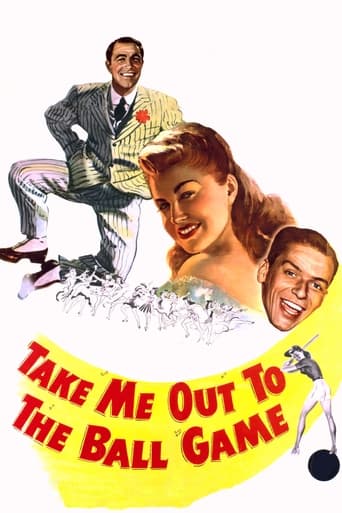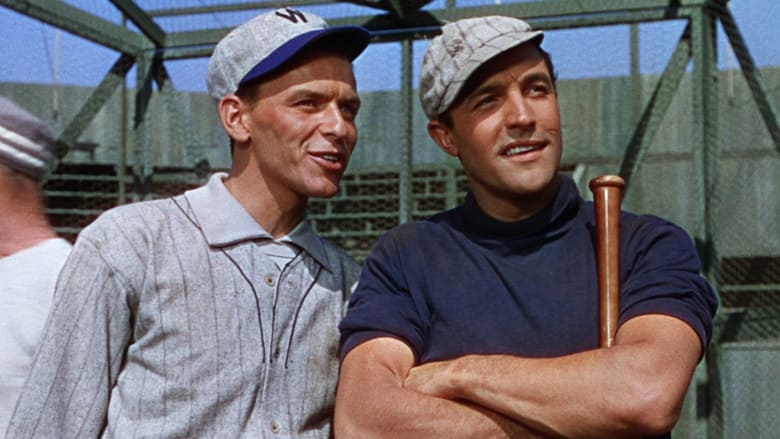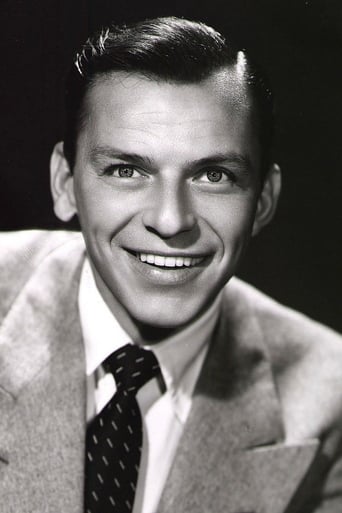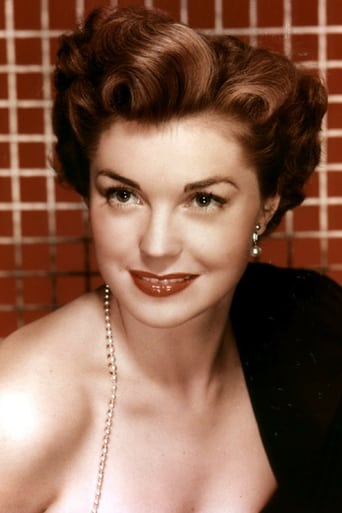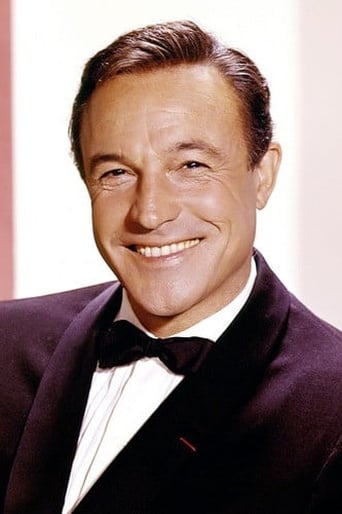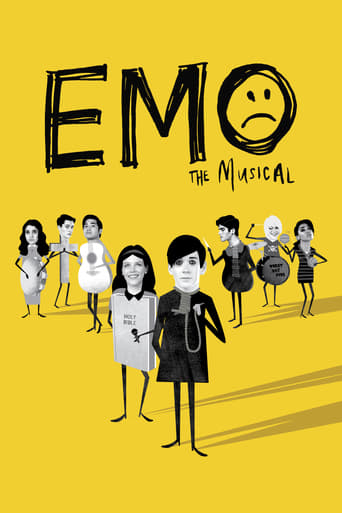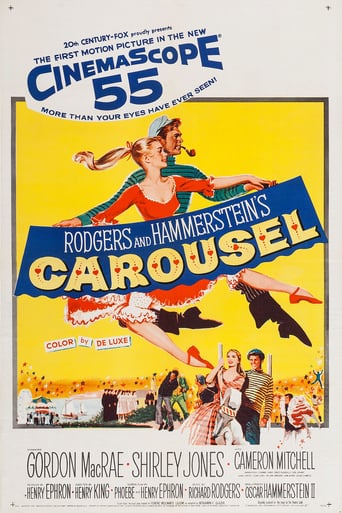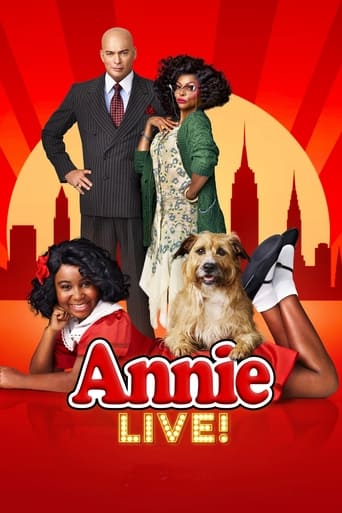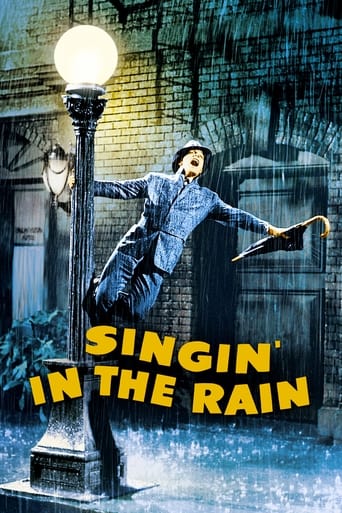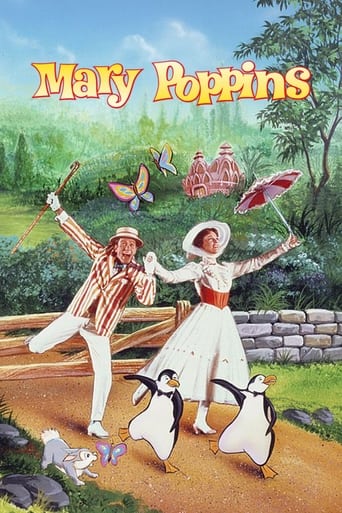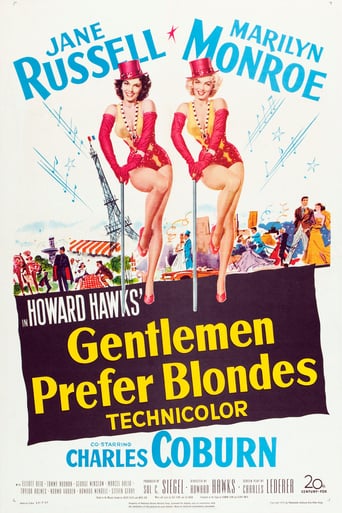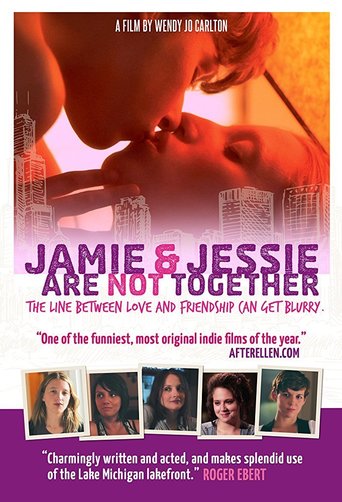Take Me Out to the Ball Game (1949)
The Wolves baseball team gets steamed when they find they've been inherited by one K.C. Higgins, a suspected "fathead" who intends to take an active interest in running the team. But K.C. turns outs to be a beautiful woman who really knows her baseball. Second baseman Dennis Ryan promptly falls in love. But his playboy roommate Eddie O'Brien has his own notions about how to treat the new lady owner and some unsavory gamblers have their own ideas about how to handle Eddie.
Watch Trailer
Cast


Similar titles
Reviews
As Good As It Gets
When a movie has you begging for it to end not even half way through it's pure crap. We've all seen this movie and this characters millions of times, nothing new in it. Don't waste your time.
By the time the dramatic fireworks start popping off, each one feels earned.
The film never slows down or bores, plunging from one harrowing sequence to the next.
Gene Kelly and Frank Sinatra reunite for third time in Take Me Out to the Ball Game, but instead of sailors on leave, they play baseball players who work as vaudeville performers in the off-season. Just as in On the Town, they're joined by Jules Munshin and Betty Garrett, and they sing and dance their way through a pretty silly story.Esther Williams is the new owner of the guys' baseball team, and while most of the players aren't happy with a woman in charge, Frank Sinatra falls madly in love with her. Once again Gene Kelly enters the love triangle; the plot isn't a difficult one to predict. Of the three Gene and Frankie pairings, this one is the least famous since there aren't any well-known musical numbers to come out of it—no offense to Betty Comden and Adolphe Green. If you're looking for the "Gene and Jerry" number, watch Anchors Aweigh, and if you're looking for "New York, New York", check out On the Town. This one is really only to be watched by die-hard fans of the three leads. Anyone looking for a good quality musical should look elsewhere.
A film that proves even the MGM musical formula of the 1940s could result in some real duds.Apparently, several principals involved in the making of "Take Me Out to the Ball Game" didn't get along while filming, and it shows. But even if they had, I don't know that the film would have been much better for it. Under the best of circumstances, I'm usually pretty resistant to Gene Kelly's charms, but he's nearly unwatchable in this, mugging constantly for the camera like he's playing to the back row of a vaudeville house. Frank Sinatra fares better as his bumbling sidekick, and Esther Williams is inoffensive if pretty bland as the love interest for Kelly. A dingbat plot is strung together with a bunch of songs, which can work if the songs are good enough, but they're not here. In fact, aside from the title tune, which I associate with the seventh inning stretch of Cubs games anyway, not a single song in the film is memorable, and the musical numbers are all the same -- two or three characters standing in a line singing directly into the camera. My attention wandered greatly during this film; in fact, I might have even dozed off.Three strikes and you're out.Grade: D
Take Me Out to the Ball Game is a spirited musical-comedy, resting its quality almost entirely on the weight of its performers, Gene Kelly and Frank Sinatra, as they play two baseball players who experience the shock of their careers when they find out the new owner of their baseball team is a woman (Esther Williams). At first, with her name announced as K.C. (Katherine Catherine) Higgins, the players, including Eddie O'Brien (Kelly) and Dennis Ryan (Sinatra), all assume by default that she's a man, but after a downright awkward mix-up at the train station when it comes time to pick her up, both Eddie and Dennis vent their frustrations about their new owner to one another.It would be a lot easier for them to stick to their simple frustrations if they both didn't find themselves rapidly falling in love with Katherine as soon as she became their new owner. Along with the difficult task of trying to get their team, the Wolves, to win another pennant, the boys must find a way to control themselves around Katherine, as well as work out some sort of cogent lines for respect when it comes to flirting and mingling with her.Punctuating this muddled relationship triangle are the film's most enthusiastic and accomplished features - its musical numbers. One of the first involves both Eddie and Dennis singing an infectious, harmonious ballad about past lovers called "Yes Indeed" with a ravishing song and dance number to accompany it. This is where the film finds its energy put to good use being that scenes that take place on the actual baseball field are slight and the relationship drama is overall petty and largely uninteresting. Having Kelly and Sinatra serve as vaudevillian performers in addition to rather narcissistic baseball players is a nice touch that works to lift the film out of whatever drudgery it would've succumbed to had it just been about the love triangle.With that, Williams holds her ground quite nicely in a film that's populated and controlled by men and their raging hormones and pride. Her character's snarky comments and incorruptible demeanor makes her a dominant force in the film that doesn't make her easily fazed by the multitude of sexually charged comments being spewed her way for much of the film. As a result, she becomes an admirable presence with a great deal of energy and charm to offset the frequently simple-minded behavior of Eddie and Dennis.Take Me Out to the Ball Game was the final film directed by Busby Berkeley, but was originally supposed to be directed by Gene Kelly and Stanley Donen. With Kelly's success as a performer, he was originally contracted by MGM to direct this film, but after the studio hired Berkeley to helm the project, Kelly and Donen were shifted to a screen writing credit by their producer Arthur Freed. As part of a compromise, Freed allowed Kelly to direct some of the musical scenes he did with Sinatra, despite leaving the bulk of the directorial duties to Berkeley. The result is a film that's charming through all its discombobulation, yet always watchable thanks to its gifted performers, especially Williams, who shouldn't be overshadowed by the performers with bigger names.Starring: Gene Kelly, Frank Sinatra, and Esther Williams. Directed by: Busby Berkeley.
Busby Berkeley is known as Hollywood's greatest choreographer. I'm not sure if many people know that he was a film director as well. This was the last movie he directed and it demonstrates that he was quite good at that craft as well.This may be considered the least of the three Sinatra-Kelley collaborations. It is a notch beneath "Anchors Away," and "On the Town," but that's like saying, Da Vinci's "Woman with Ermine," us bit as good as his "Mona Lisa" or "Last Supper." It is still a great entertainment and still lots of fun to watch for musical fans.Sinatra is charming and has great chemistry with Gene Kelley. While never a great actor, Sinatra was effective when he was young and didn't stray far from his awkward adolescent personality. In the late 50's and 60's, his personality changed and he became cynical, losing the sweet innocence that his 40's and early 50's movies captured.Kelley is pure charm. He is very close to Frederick March in his naturalness and his dancing is delightful as usual.Ether Williams may have had an unpleasant time making the film according to reports, but she doesn't show it. She doesn't stand out, but she is competent and holds her own. Edward Arnold, the bad manipulator from "Mr. Smith Goes to Washington," plays essentially the same role here quite efficiently.Betty Garrett does not appear until half way into the movie and manages to equal Sinatra, Kelley, and Williams. It is a great star making performance, repeated in "On the Tow," later that year. It is a sad thing that she was blacklisted the following year because her husband had been a member of the communist party. Except for one role in "My Sister, Eileen," she did not work for a whole decade in films. The best revenge was perhaps the fact that she was the only actor to appear as a regular cast member in the two #1 situation comedies on American television in the 1970's, "All in the Family," and "Happy Days." Her film career lasted for 60 years, a longer career than any of the bastards who blacklisted her.This is a bright, colorful, cheerful movie about Turn of the 19th Century Baseball and Vaudeville. The technical credits are Hollywood at its best. It is mostly worth seeing to bask in the glow of its four stars who were all young, full of energy and exciting to see.

